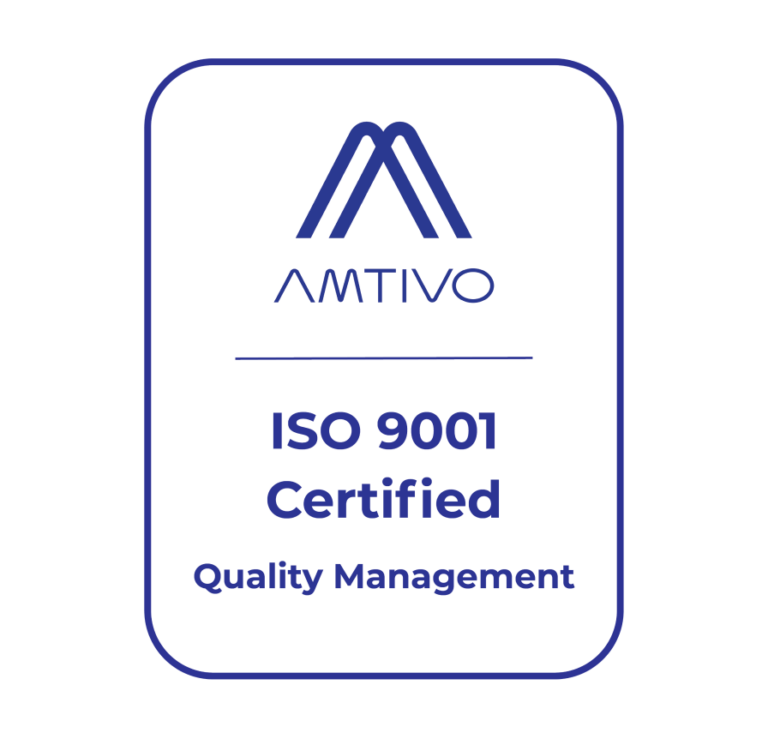Die Casting Quality Control with Zinc Alloys
Die casting quality control with zinc alloys is critical in manufacturing. At Deco Products, Jason Madison leads this vital function as the Quality Manager. With an engineering background, Jason spent his first 15 years at Deco Products in various engineering roles. This experience gave him deep insight into the entire design and manufacturing process.
Deco’s Quality Management System (QMS) encourages quality assurance at each level of production. The purpose of QMS is to meet or exceed our customers’ expectations of quality.
Deco Products is an ISO 9001:2015 Certified Company
This registration is an international standard that establishes a common baseline and system.
However, our internal processes and specifications go even further to ensure quality standards.
We have detailed inspection criteria and processes tailored to each specific part number.
Our internal inspection plans cover every stage of manufacturing.
If needed Deco Products can accommodate other special customer requirements. Besides ISO standards other industry best practices, including but not limited to:
- Capability Studies
- Real Time Data Collection
- CMM Analysis
- Customer Inspection Plans
- Destructive and Non-Destructive Testing
- PPAP for New and Revised Products
- Corrective Actions
- Preventative Actions
The ISO Quality Policy
As an ISO 9001:2015 Certified company, we revamped our quality policy in recent year. The goal was to make it more memorable and actionable. The idea came from Chris Storlie, our CEO. His suggestion was a simple quality policy that uses those three letters, I, S, and O.
After brainstorming together, the team came up with:
“I am responsible for quality, satisfying the customer, and finding opportunities for improvement.”
This simple yet powerful statement communicates our commitment to quality, customer satisfaction, and continuous improvement.
What is Manufacturing Quality?
Manufacturing quality is the conformance to customer specifications. Conformance to customer specifications is the fundamental basis for managing operations to produce quality products and services. Customer expectations have risen over time and manufacturing quality is an absolute requirement. Most importantly, meeting customer expectations no matter where products are manufactured, distributed, or sold.
Quality Planning
At Deco, quality planning begins before producing the first part. In an initial meeting with tooling design, production, and engineering. The team compiles data regarding the casting’s application, function, and performance requirements. The team develops a quality plan by collecting data.
Our quality department relies on custom-made databases and inspection plans tailored to each customer’s part numbers. These plans ensure that we follow standardized processes.
While leveraging specialized equipment like optical comparators and pin gauge drawers for precise measurements.
Our team designs and fabricates any necessary gauges or fixtures, upon completion of the plan. When the tooling is complete, we produce samples and create dimensional layouts based on the customer’s drawing. After that, we integrate routine inspections into production to ensure the product meets or exceeds our customers specifications.
Technologies And Equipment We Utilize
We utilize specialized equipment and technologies in our quality lab. First, we have an array of stationary inspection tools. These include optical comparators, Coordinate Measuring Machines (CMMs), and thousands of precision gauges.
Additionally, we employ standard measurement devices such as calipers and micrometers.
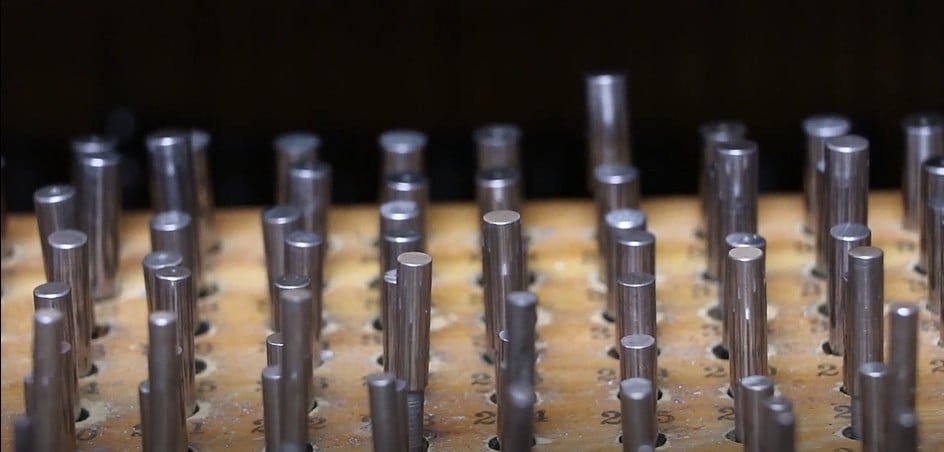
We design most of our gauges to inspect important geometry or dimensions by directly contacting the surface of the parts. For visual inspections we might use a simple pin gauge to verify a hole size quickly and easily.
However, we also rely on the extreme accuracy of our CMM for more complex measurements.
The CMM is programmable to check any dimension or geometry in three-dimensional space. The CMM’s slower speed prevents its use for high-volume inspection. However, it validates initial part samples against specifications.
By deploying the right mix of technologies, Deco Products can ensure production quality in our customers supply chains.
How We Measure Part Quality
The Coordinate Measurements Machine (CMM) serves a vital role in measuring part conformity to customer needs. First, we review the customer’s drawings and specifications.
These outline the part’s required dimensions, tolerances, and other critical features.
Next, we program the CMM based on the part requirements from the customer drawings. The CMM can then precisely measure the initial production parts. This allows us to validate if the manufactured components meet the tolerances and dimensional callouts specified by the customer.
Essentially, the CMM confirms the actual measured values of the parts fall within the allowable ranges defined by the customer. By comparing our output against their exact standards, we ensure the quality of the parts conforms to what they need. Leveraging this advanced measurement technology is key to our quality control process.
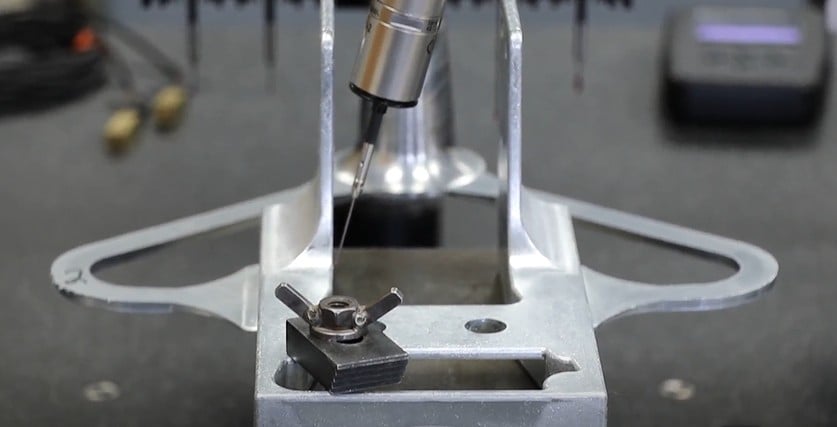
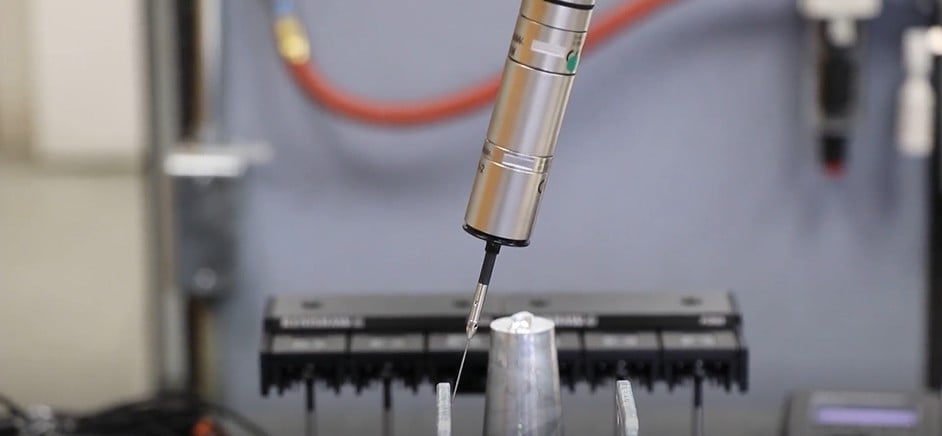
Inspection Plans to Measure Process Effectiveness and Customer Requirements
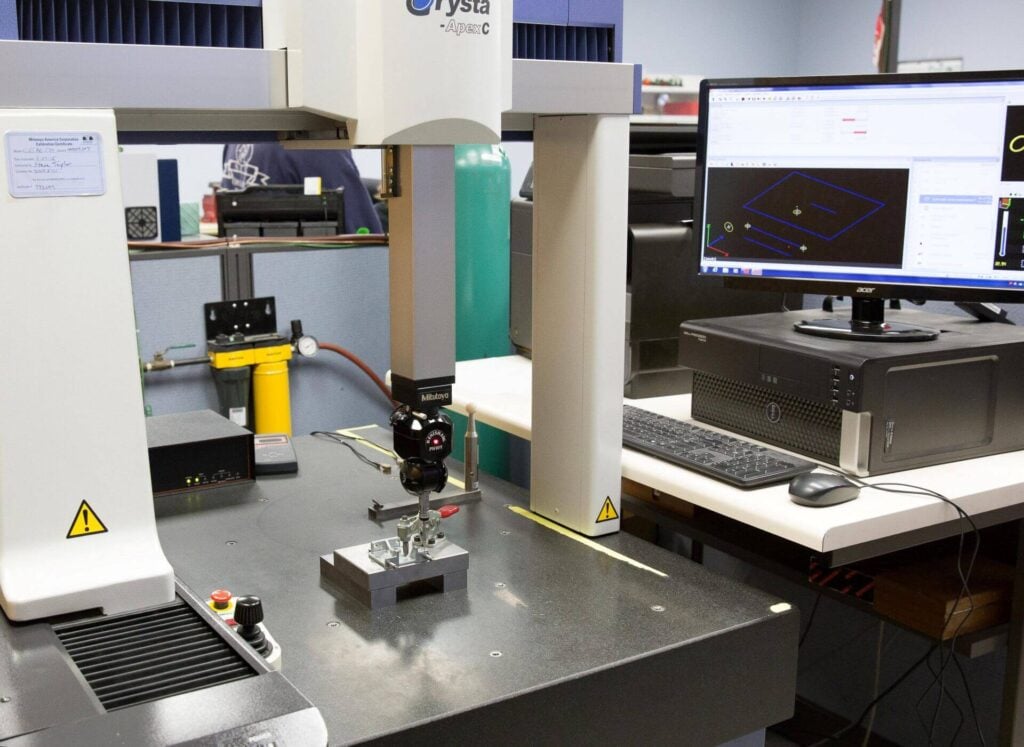
Deco Products establishes individualized inspection plans for each part number to measure our manufacturing processes’ effectiveness.
Simple parts undergo basic inspections, while more complex parts require more extensive inspections.
We maintain a detailed database listing every step we check throughout the process.
This spans the full manufacturing cycle – from liquid zinc to the finished products.
Each production phase has its own unique inspection criteria to verify we are meeting that part’s specific requirements.
For example, we inspect the casting, trimming, gating, vibratory finishing, and any machining operations.
With over 4,000 active part numbers that could run on any given day, maintaining these inspection plans is critical.
They dictate exactly which gauges, equipment, and methods we need to measure and validate every part.
To organize this, we have cabinets containing thousands of labeled gauges for different parts and features. Our cabinets have over 2,000 gauges identified by their cabinet, shelf, and bin location.
This systematic approach allows us to effectively track and deploy the right inspection tools for every job.
By defining and following these part-specific inspection plans through the entire process. We can ensure our manufacturing meets the quality requirements every step of the way.
Integrated Quality Control Across All Departments
Deco Products integrates quality control with all departments and manufacturing processes. The integration begins when we receive a new part order from a customer. Our engineering team collaborates with the quality team during the initial quoting and planning phase.
Together, we evaluate if we can manufacture the part to the customer’s specifications. Just as importantly, we ensure we can measure and inspect the part qualities that the customer requires. This cross-functional effort allows us to develop individualized inspection plans tailored to each new part’s production processes.
Once manufacturing begins, our quality integration continues to the production floor. On the first day of a production run, the manufacturing teams set up the equipment and lines. They produce initial setup sample parts, which they submit to our quality inspectors.
The inspectors then conduct a rigorous start-up inspection on these initial parts. They check numerous additional part characteristics and measurements beyond the normal production runs inspection plans. This startup inspection verifies the parts meet all requirements before full production ramps up.
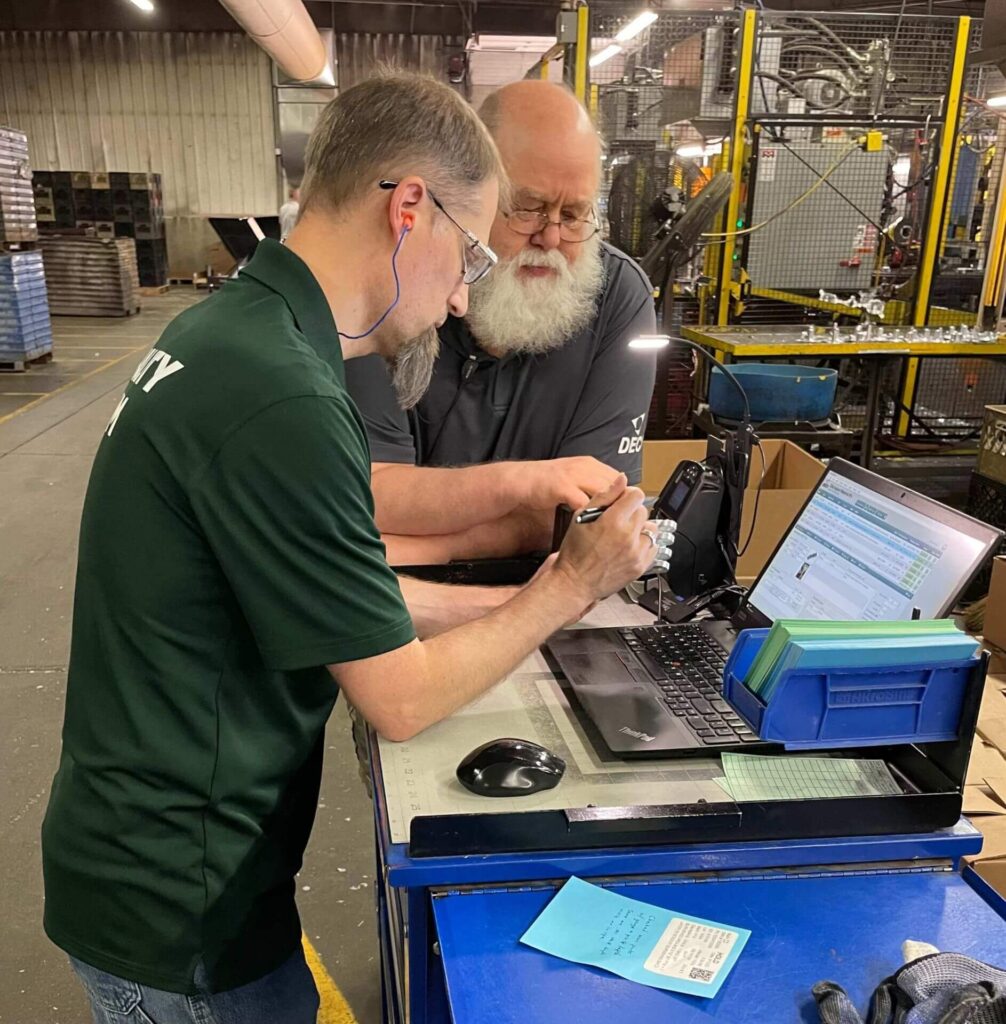
With manufacturing underway, DECO’s quality team provides 24-hour coverage through roving inspectors. These inspectors move between machines and processes, continuously sampling parts against the criteria checked during start-up. This monitoring integration provides further confirmation of ongoing conformance with manufacturing teams.
Finally, at the end of each production order. The quality team performs a comprehensive final audit inspection, just like the startup inspection. This ensures sustained quality consistency from the first parts produced to the last.
Through this seamless quality control integration across departments, processes, and manufacturing stages, we deliver exceptional quality products meeting our customers’ exact needs.
Customer Feedback
Every year, we solicit feedback from our customers through our sales team. This feedback serves as a report card, allowing us to identify areas to improve customer experience.
Additionally, our quality team maintains open lines of communication with our customers’ quality teams. With this direct line of communication, it brings together the right people to discuss any concerns with new shipments.
In the event a customer reaches out to Deco’s quality team it leads to our quality control processes.
Quality Control Processes: Addressing Quality Challenges
When we discover quality issues, we will go through the standard corrective actions procedures that most manufacturers follow.
The corrective action process includes the emphasis to identify what is in control verses what needs improvements.
Overall, looking to find a root cause, eliminate the root cause, and deliver a response back to our customer.
Once we discover the cause, we will modify our system to prevent this event from happening again.
Die Casting Quality Control Continuous Improvement
Firstly, Deco is dedicated to zinc die cast process excellence.
Secondly, this dedication exemplifies our commitment to continuous improvement.
Finally, our continuous improvements include ongoing process improvements, implementing lean initiatives and 5S efforts.

